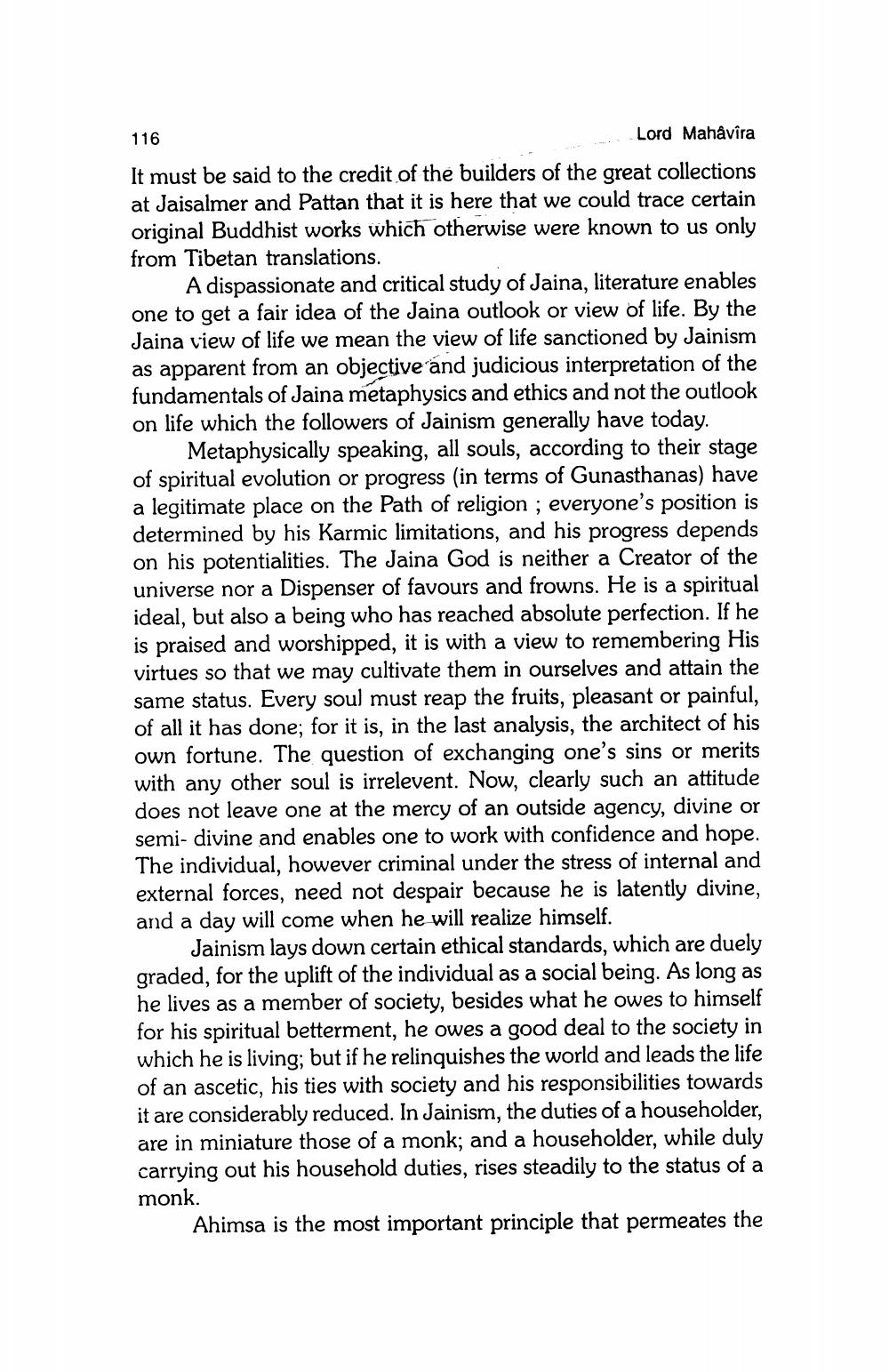________________
116
Lord Mahavira
It must be said to the credit of the builders of the great collections at Jaisalmer and Pattan that it is here that we could trace certain original Buddhist works which otherwise were known to us only from Tibetan translations.
A dispassionate and critical study of Jaina, literature enables one to get a fair idea of the Jaina outlook or view of life. By the Jaina view of life we mean the view of life sanctioned by Jainism as apparent from an objective and judicious interpretation of the fundamentals of Jaina metaphysics and ethics and not the outlook on life which the followers of Jainism generally have today.
Metaphysically speaking, all souls, according to their stage of spiritual evolution or progress in terms of Gunasthanas) have a legitimate place on the Path of religion ; everyone's position is determined by his Karmic limitations, and his progress depends on his potentialities. The Jaina God is neither a Creator of the universe nor a Dispenser of favours and frowns. He is a spiritual ideal, but also a being who has reached absolute perfection. If he is praised and worshipped, it is with a view to remembering His virtues so that we may cultivate them in ourselves and attain the same status. Every soul must reap the fruits, pleasant or painful, of all it has done; for it is, in the last analysis, the architect of his own fortune. The question of exchanging one's sins or merits with any other soul is irrelevent. Now, clearly such an attitude does not leave one at the mercy of an outside agency, divine or semi- divine and enables one to work with confidence and hope. The individual, however criminal under the stress of internal and external forces, need not despair because he is latently divine, and a day will come when he will realize himself.
Jainism lays down certain ethical standards, which are duely graded, for the uplift of the individual as a social being. As long as he lives as a member of society, besides what he owes to himself for his spiritual betterment, he owes a good deal to the society in which he is living; but if he relinquishes the world and leads the life of an ascetic, his ties with society and his responsibilities towards it are considerably reduced. In Jainism, the duties of a householder, are in miniature those of a monk; and a householder, while duly carrying out his household duties, rises steadily to the status of a monk.
Ahimsa is the most important principle that permeates the




